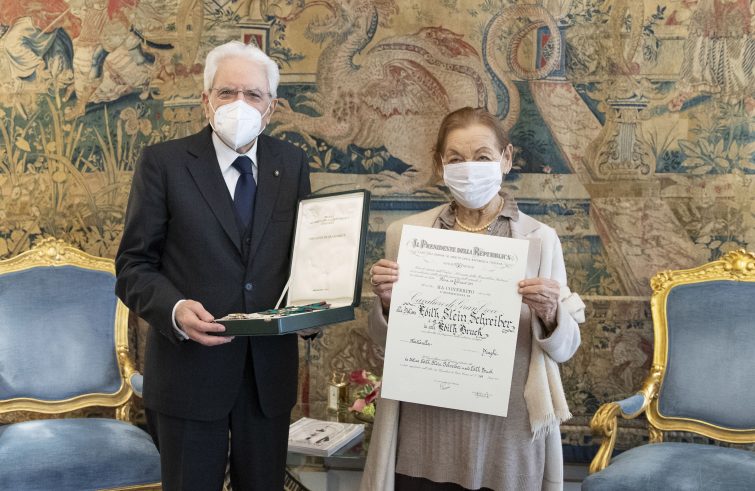The Quirinale honors writer and poet Edith Bruck

“Remembering is pain, but I never shirked. Even illuminating a single consciousness is worth the effort and the pain of keeping alive the memory of what it was. For me, memory is living and writing is breathing”. So the Hungarian-born but Italian by adoption Holocaust survivor writer and poet Edith Bruck, who just turned 90, in a recent interview stressed her commitment to a life of witness, writing, poetry.
Bruck’s tireless dedication, pursued through extraordinary books, was honored by the Italian President Sergio Mattarella bestowing on her the honor of Knight of the Grand Cross of the Order of Merit of the Italian Republic. It is a symbolic thanks by the whole country. “When I learned of this honor – said Edith – I cried”.
Edith Bruck, who as a young girl survived Auschwitz and other extermination camps, was received at the Quirinale last week. On February 20, she made the news for receiving a visit from Pope Francis in her Rome home. Her last book, Il pane perduto (The lost bread), recently was nominated to the Strega, the most prestigious Italian literary award.
The author traces in it her life, marked in her youth by deportation to death camps. A comparison from which she never escapes, aware of the fact that “illuminating a single conscience is worth the effort and the pain of keeping alive the memory of what has been”, as she affirmed in an interview with L’osservatore Romano.
To propose the book to the Strega award was the journalist and former parliamentarian Furio Colombo, creator of the Act that established in Italy the Day of Memory, who speaks of the book as “dense and bearer of truth” characterized by “literary beauty, stylistics, emotions”.
The friendship between Edith Bruck and Colombo has been deep for a long time. “We are practically agemates, we remember the same people, the same situations”, Colombo observes. “Edith Bruck is a Shoah witness, but even before that, a bit like Primo Levi, a great writer. When she meets the youths in school, that experience moves and pulls them in. Her words and her poetry are a gift”. “Edith faces a very difficult life moment of loneliness and isolation in a world that is becoming increasingly angry. But she does it – concludes Colombo – with mysterious and extraordinary joy”.
